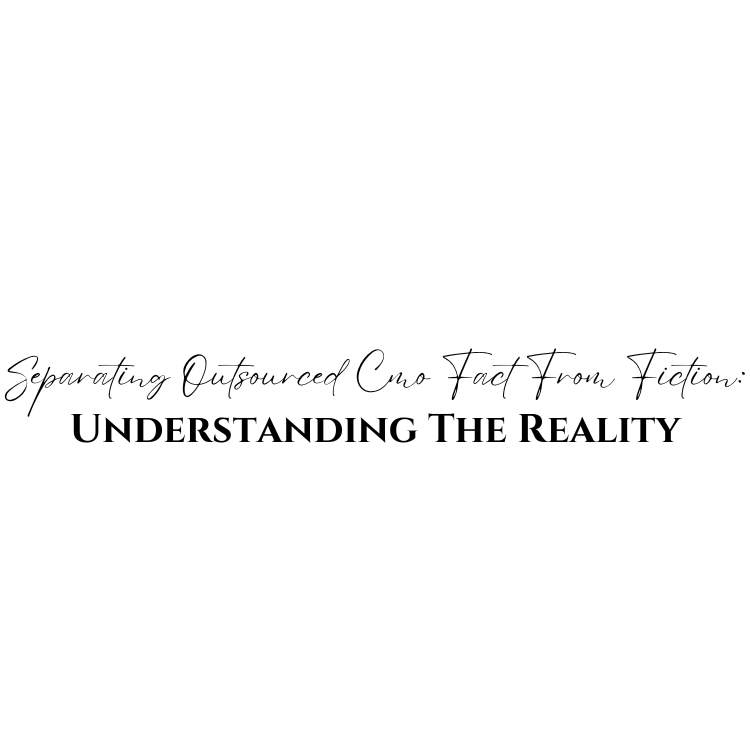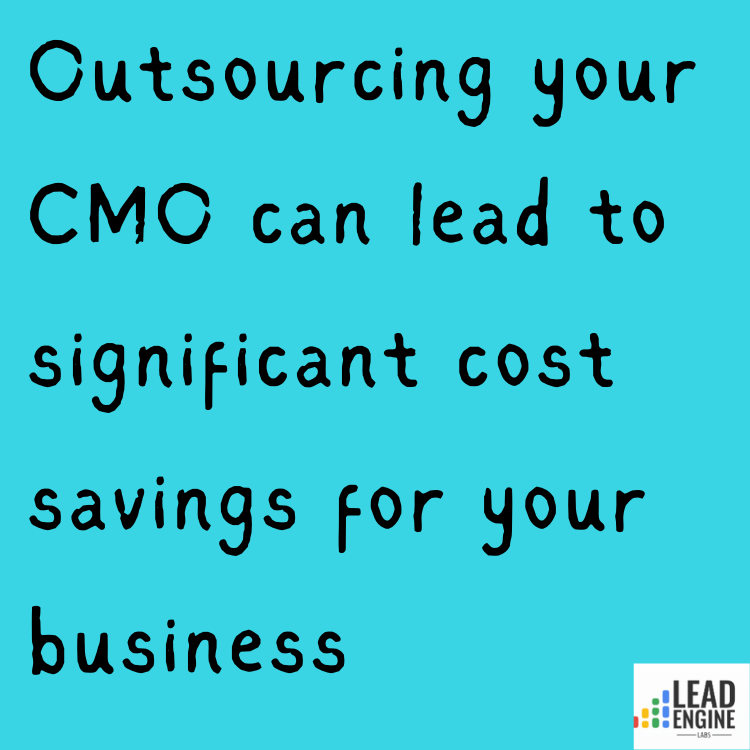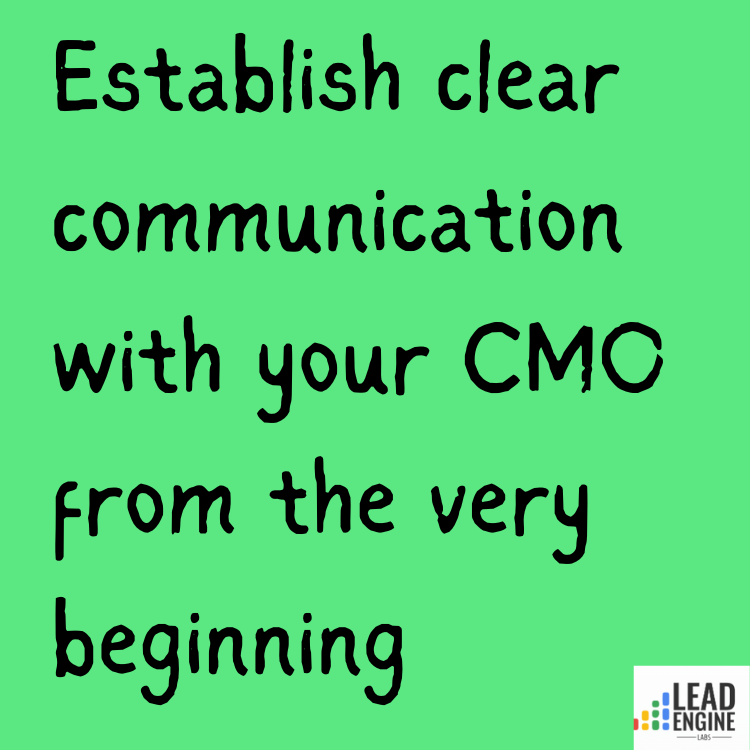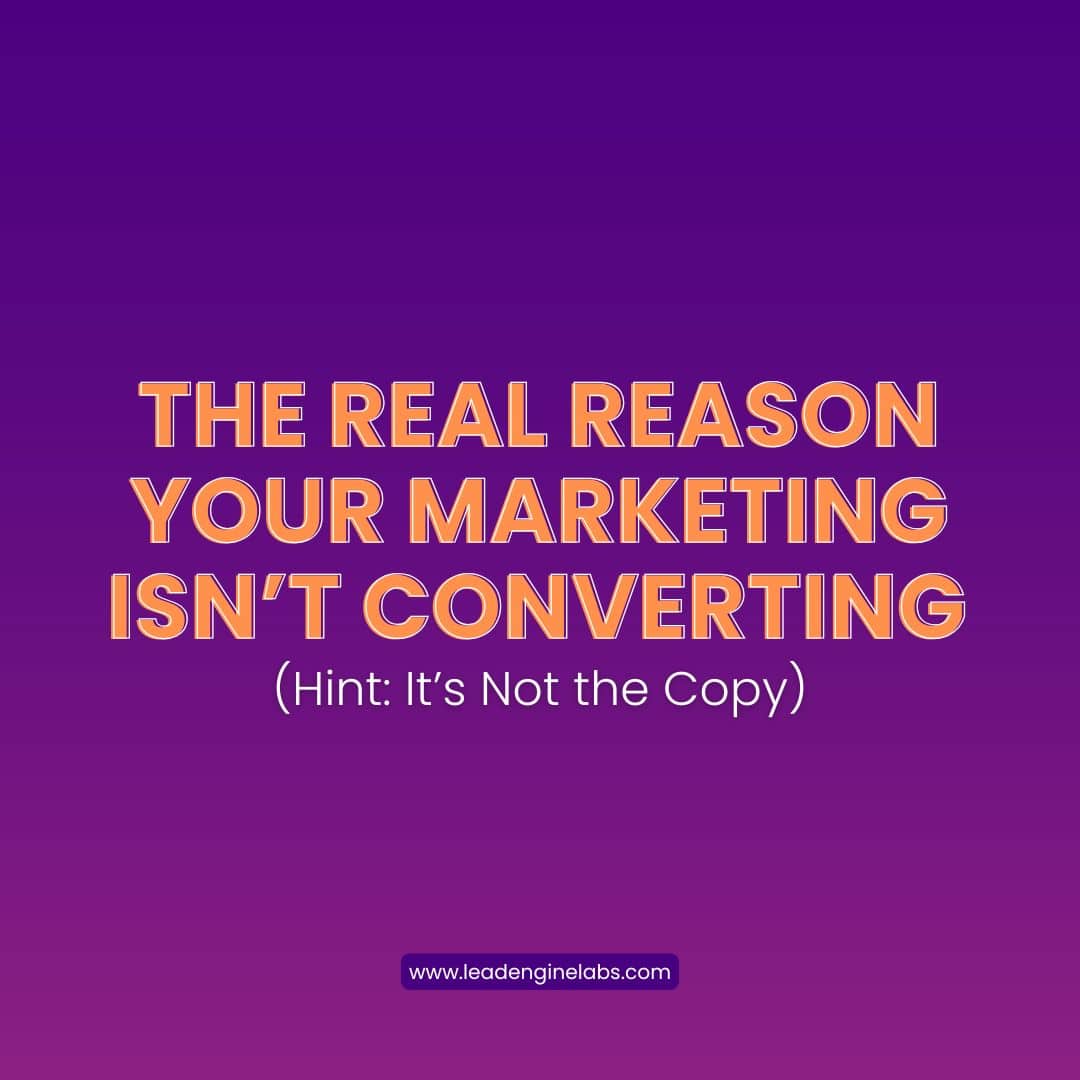
You’ve heard the rumors, the whispers, and maybe even the outright slander about outsourced CMOs. They’re unreliable, they don’t understand your business, they’re too expensive. But is any of that true? It’s time to separate fact from fiction and understand the reality of outsourcing a Chief Marketing Officer.
As a forward-thinking business owner or executive, you know that innovation is key to staying ahead in today’s rapidly changing market. Sometimes that means looking outside your organization for specialized expertise. But with so much misinformation out there about outsourced CMOs, it can be hard to make an informed decision.
That’s why we’re here to provide you with a comprehensive guide on everything you need to know about outsourcing your marketing leadership – from what it means to work with an outsourced CMO to how to choose one who will deliver real results for your business.
So buckle up and get ready for a deep dive into the world of outsourced CMOs – it might just be the game-changer your company needs.
Key Takeaways
- Outsourcing a CMO can provide cost savings and access to specialized expertise and tools, while also bringing in fresh perspectives and innovative ideas.
- Drawbacks of outsourcing a CMO include a lack of company knowledge and communication challenges.
- When choosing an outsourced CMO, relevant experience, clear communication guidelines, and established performance metrics are important considerations.
- Myths about outsourced CMOs include loss of control over branding and messaging, and the idea that they are only for large corporations with big budgets.
What is an Outsourced CMO?
Wondering what an outsourced CMO is? It’s a savvy solution for businesses looking to expand their marketing efforts without the added expense of hiring a full-time executive.
An outsourced CMO, or Chief Marketing Officer, is a professional who provides strategic guidance and direction to improve a company’s marketing effectiveness. They work on a contract basis with firms that require their expertise but don’t want to commit to having someone in-house.
The responsibilities of an outsourced CMO can vary depending on the needs of the business they are working with. They may be responsible for creating and implementing marketing plans, managing budgets, overseeing advertising campaigns, developing brand strategies, conducting market research, and analyzing results. Essentially, they take on all the duties of an in-house CMO without being on-site full-time.
Outsourcing a CMO has its advantages and disadvantages which we’ll discuss next. But first, it’s important to understand that outsourcing this role can be beneficial for companies looking to save money while still receiving top-notch marketing advice and execution. With an outsourced CMO on board, you get access to years of experience at a fraction of the cost of hiring someone full-time.
Advantages and Disadvantages of Outsourcing a CMO
As you’re considering outsourcing a Chief Marketing Officer (CMO), it’s important to weigh the advantages and disadvantages.
One of the key benefits is cost savings, as hiring a full-time CMO can be expensive. Additionally, outsourcing provides access to specialized expertise that may not be available in-house.
However, there are potential drawbacks such as lack of company knowledge and communication challenges that could impact the effectiveness of an outsourced CMO.
It’s important to carefully consider these factors before making a decision.
Cost Savings

Outsourcing your CMO can lead to significant cost savings for your business. Conducting a cost-benefit analysis and ROI calculation can help you determine the financial benefits of outsourcing versus hiring an in-house CMO.
Here are four ways outsourcing your CMO can save you money:
-
Lower overhead costs: When you outsource, you don’t have to worry about paying for office space, equipment, or employee benefits.
-
More efficient use of resources: Outsourced CMOs typically have access to specialized tools and expertise that in-house teams may not have. This means they can get more done in less time, leading to cost savings.
-
Scalability: Outsourcing allows you to scale up or down quickly depending on your needs, without having to worry about hiring or firing employees.
-
Access to global talent: Outsourcing gives you access to a wider pool of talent from around the world, often at lower rates than local hires.
By outsourcing your CMO, not only do you save money but also gain access to expertise that may not be available in-house.
Access to Expertise
You can tap into a deep well of marketing expertise by outsourcing your CMO, like dipping a ladle into a bottomless pool of knowledge. With this move, you gain access to specialists with diverse backgrounds and years of experience in the field. These experts have worked on various projects, dealt with different clients, and have the ability to deliver results quickly. As such, they can offer insights that might not be possible for an in-house team who are bogged down by company politics or limited resources.
Outsourcing benefits extend beyond just having a higher level of expertise access but also cost savings as previously discussed. The combination of both makes it an attractive option for businesses looking to innovate and stay competitive. However, it’s important to note that outsourcing has its drawbacks too.
One such limitation is the lack of company knowledge these outsourced CMOs possess which may lead to communication mishaps or slow progress without proper management from within the company itself.
Lack of Company Knowledge
Don’t worry if you feel like your outsourced marketing expert isn’t quite getting your company’s unique vibe – they may just need a little more time to fully understand your business. While outsourced CMOs bring in fresh perspectives and innovative ideas, it takes some time for them to fully grasp the nuances of a company’s culture and values. This challenge can be addressed by facilitating knowledge transfer between the two parties.
To help your outsourced CMO better understand your company, consider implementing these tactics:
- Schedule regular meetings with key stakeholders to discuss the company’s history, mission, and values.
- Share any relevant documents or materials that showcase the brand’s voice and personality.
- Invite the outsourced team to attend internal events or training sessions.
- Encourage open communication channels so that both parties can ask questions and provide feedback.
As you work on building a stronger foundation of understanding with your outsourced CMO, keep in mind that communication challenges may still arise. However, by laying this groundwork for shared knowledge, you’ll be better equipped to tackle these obstacles together.
Communication Challenges
It’s always easy to have crystal-clear communication with an outsourced marketing expert who is not physically present, isn’t it? Not really.
One of the biggest challenges in outsourcing marketing tasks is overcoming language barriers and managing time zone differences. These factors can significantly affect the quality of collaboration between your company and the outsourced CMO.
To overcome language barriers, it’s important to establish clear guidelines for communication. This includes using simple and concise language, avoiding idioms or cultural references that may be lost in translation, and setting up regular check-ins to ensure everyone is on the same page.
Managing time zone differences requires flexibility from both parties. It may mean adjusting work schedules or dedicating specific times for meetings that are convenient for all parties involved. By taking these steps, you can improve communication with your outsourced CMO and create a more productive working relationship.
As you navigate through the challenges of outsourcing your marketing needs, it’s important to keep in mind the role of an outsourced CMO. They should be seen as a strategic partner rather than just a service provider.
The Role of an Outsourced CMO

Discovering the role of an outsourced CMO can be like unlocking a treasure trove of marketing expertise. Role clarity is key to understanding what you can expect from your outsourced CMO.
You may find that they’re responsible for developing and executing the company’s overall marketing strategy, including brand development, advertising, market research, and product positioning. The goal is always strategic alignment with your business objectives.
Your outsourced CMO should work closely with you to understand your company’s unique value proposition, target audience, and competitive landscape to develop a customized marketing plan that achieves measurable results. They’ll likely have experience working with companies across various industries and can provide valuable insights into how other businesses have successfully marketed their products or services.
Understanding the role of an outsourced CMO is just one piece of the puzzle when it comes to choosing the right partner for your business. It’s important to evaluate potential candidates based on their relevant experience, cultural fit with your organization, and ability to deliver on promised outcomes.
In the next section, we’ll explore some key considerations for making this decision.
How to Choose the Right Outsourced CMO
To choose the right outsourced CMO for your business, you need to consider several factors. First and foremost, relevant experience is crucial. Look for an outsourced CMO who has worked with businesses similar to yours and has a proven track record of success. This will ensure that they understand your industry and can provide tailored solutions that meet your specific needs.
Cultural fit is also important when choosing an outsourced CMO. You want someone who shares your values and understands your company culture. This will help them integrate seamlessly into your team and work collaboratively towards achieving common goals.
Make sure the outsourced CMO can deliver on promised outcomes. Ask for references or case studies that demonstrate their ability to drive results in areas such as lead generation, customer acquisition, or revenue growth. Red flags to watch out for include vague promises or lack of transparency around their approach.
By carefully considering these factors when choosing an outsourced CMO, you can find a partner who will help take your business to the next level. In the next section, we’ll explore what it’s like working with an outsourced CMO and how to ensure a successful partnership.
Working with an Outsourced CMO
When working with an outsourced CMO, it’s important to establish clear communication from the very beginning. This means setting expectations for how often you’ll communicate and what information needs to be shared.
It’s crucial to set realistic expectations for what can be achieved within a certain timeframe and budget. Regularly evaluating performance ensures that both parties are on the same page and any necessary adjustments can be made quickly.
By following these key points, you can ensure a productive and successful partnership with your outsourced CMO.
Establish Clear Communication

Make sure you establish clear communication with your outsourced CMO so that they fully understand your expectations and can deliver the results you need. Improving collaboration and building trust is key to creating a successful partnership with an outsourced CMO.
Start by setting up regular meetings and check-ins to discuss progress, address any concerns or challenges, and ensure that everyone is on the same page.
When communicating with your outsourced CMO, provide them with as much information as possible about your company’s goals, target audience, market position, budget constraints, etc. This will help them create a customized marketing strategy that aligns with your business objectives.
Additionally, be open to their suggestions and feedback – remember that they have experience working with other clients in similar industries and may have valuable insights to share. By establishing clear lines of communication from the outset of your partnership, you’ll set yourself up for success and ensure that both parties are working towards the same end goal.
To get the most out of your outsourcing relationship, it’s important to set realistic expectations for what your outsourced CMO can deliver. By having open conversations about timelines, budget constraints, resources available (both internally and externally), and potential roadblocks along the way – you’ll be able to avoid disappointment or frustration down the line.
Remember that outsourcing is not a magic solution – it requires effort from both parties for it to be successful. With clear communication channels established from day one, however; there’s no reason why it can’t work smoothly!
Set Realistic Expectations
Setting realistic expectations for your outsourced CMO is crucial to ensuring a successful partnership that yields the results you need. It’s important to remember that even the most experienced and skilled marketing professionals have limitations, and it’s unrealistic to expect them to achieve everything at once.
Be clear about what you want to accomplish in a specific timeline, and work with your outsourced CMO to develop a realistic plan of action that takes into account their resources, capabilities, and constraints.
Managing timelines is another critical element of setting realistic expectations. Ensure that you’ve established deadlines for each phase of the project and communicate them clearly with your outsourced CMO. If any delays or issues arise, address them as soon as possible so that they can be resolved quickly without affecting the overall project timeline.
By setting achievable expectations and managing timelines effectively, you can foster a productive working relationship with your outsourced CMO while achieving your marketing goals.
As such, regularly evaluating performance is essential in ensuring a smooth-sailing partnership between an organization and its outsourced CMOs. This enables both parties to assess their progress toward meeting objectives while addressing any gaps or shortcomings before they become major problems.
Regularly Evaluate Performance
Regularly evaluating performance is crucial in ensuring a successful partnership with your outsourced CMO. To effectively evaluate the performance of your CMO, it’s important to establish clear metrics for success. This can include metrics such as on-time delivery of projects, quality of work produced, and adherence to budgetary constraints.
In addition to establishing metrics for success, it’s important to regularly review and analyze the data collected from these metrics. This allows for continuous improvement strategies to be implemented throughout the partnership. By identifying areas where improvements can be made, you can work with your CMO to develop solutions that will lead to better outcomes and a stronger working relationship overall.
Evaluating performance regularly helps ensure that both parties are meeting expectations and working towards common goals. Moving forward into case studies of successful outsourced CMOs, it’s crucial to understand how these partnerships were able to achieve their success through effective evaluation and communication.
Case Studies of Successful Outsourced CMOs
Outsourcing the role of a CMO can be successful, as seen in multiple case studies where companies have overcome initial doubts about the effectiveness of outsourcing. Keys to success in these cases include collaboration strategies and measurable results that lead to client satisfaction. Here are some examples:
-
A startup technology company wanted to expand its reach but lacked internal resources for marketing. They outsourced their CMO and saw significant growth in website traffic, social media engagement, and sales revenue.
-
A healthcare organization struggled with stagnant patient numbers and needed a fresh perspective on its marketing approach. By outsourcing their CMO, they were able to implement new campaigns that resulted in increased patient acquisition and retention rates.
-
An established financial services firm had a goal of improving customer experience but was struggling to make progress internally. Outsourcing their CMO allowed them to develop a comprehensive strategy that included customer feedback analysis and targeted messaging, leading to improved customer satisfaction scores.
These success stories demonstrate the potential benefits of outsourcing your CMO. By collaborating closely with an outsourced team and measuring results, you can achieve tangible improvements in your business’s performance.
As you consider whether outsourcing your CMO is right for your company, it’s important to understand common misconceptions about this practice. In the next section, we’ll explore some of these myths and provide insights into the reality of working with an outsourced CMO team.
Common Misconceptions about Outsourced CMOs

You may have heard some myths about working with an external CMO, but it’s important to know the truth behind these misconceptions.
One of the most common misunderstandings is that outsourcing your marketing department means you lose control over your brand and messaging. This couldn’t be further from the truth. A good outsourced CMO works closely with you to understand your goals, values, and target audience. They become an extension of your team and work collaboratively to create a strategy that aligns with your vision.
Another myth is that outsourced CMOs are only for large corporations with big budgets. In reality, businesses of all sizes can benefit from outsourcing their marketing efforts. Working with an external partner can help smaller companies level the playing field by providing access to expertise and resources they wouldn’t otherwise have in-house. Additionally, outsourcing allows businesses to save on overhead costs like salaries, benefits, and office space.
Lastly, some might believe that working with an outsourced CMO means sacrificing quality for affordability. However, this is not true either. While cost savings may be a benefit of outsourcing certain departments or functions within a business model such as sales or customer service which doesn’t require face-to-face interactions; quality should never be compromised due to budget constraints alone when it comes to marketing services because having high-quality content and campaigns will directly impact revenue growth through increased engagement rates which provides value for money in terms of ROI.
Separating fact from fiction when it comes to outsourced CMO myths is crucial for businesses considering this option as part of their growth strategy. Outsourcing does not mean losing control over branding or messaging nor is it exclusive only for larger corporations or budget-focused at the expense of quality output; instead it provides access to specialized skills and resources while also saving costs in certain areas allowing businesses to focus on their core competencies while leaving other specialized services such as marketing services managed externally by experts who can provide valuable insights for driving revenue growth.
Frequently Asked Questions
What is the typical cost range for hiring an outsourced CMO?
Looking to hire an outsourced CMO? Understand budget and ROI considerations. Factors affecting pricing include industry and scope. Analyze costs carefully for maximum innovation potential.
How does the role of an outsourced CMO differ from that of an in-house CMO?
Did you know that companies who hire an outsourced CMO can save up to 50% on salary and benefits compared to in-house CMOs? Outsourced CMOs offer the benefits of experience, flexibility, and unbiased decision-making.
What are some common challenges faced when working with an outsourced CMO?
Working with an outsourced CMO can present communication and integration challenges, but the fresh perspective and flexibility they bring can outweigh these obstacles. Experienced management is crucial to successfully navigating these issues.
Can an outsourced CMO effectively manage a company’s entire marketing strategy?
You can leverage Outsourced CMO benefits, such as access to specialized expertise and cost savings, to effectively manage your marketing strategy. However, Outsourced CMO limitations include potential communication challenges and a lack of familiarity with company culture and values.
How do you measure the success of an outsourced CMO engagement?
To measure success in an outsourced CMO engagement, focus on specific KPIs agreed upon during the contract negotiation. Analyze results regularly and adapt strategies as needed. A successful partnership should result in increased revenue and brand awareness.
Conclusion
Now that you have a comprehensive understanding of what an outsourced CMO is, its advantages and disadvantages, the role they play in your business, how to choose the right one, and how to work with them successfully, it’s time to dispel some common misconceptions.
One common misconception is that outsourcing a CMO means giving up control over your marketing strategy. However, this couldn’t be further from the truth as outsourced CMOs work closely with their clients to ensure that their goals are met.
Another misconception is that outsourcing a CMO is only for large companies. But in reality, businesses of all sizes can benefit from working with an outsourced CMO. Just like how a small seed can grow into a giant oak tree when nurtured properly, so too can small businesses grow exponentially when provided with expert marketing guidance.
In conclusion, outsourcing a CMO may seem daunting at first but it can bring tremendous value to your business. As long as you do your due diligence in selecting the right partner and establishing clear communication channels from the outset, you’ll be well on your way to achieving success beyond your wildest dreams! Think of an outsourced CMO as the sun shining down on your budding garden – providing just the right amount of light and warmth needed for growth and prosperity.




